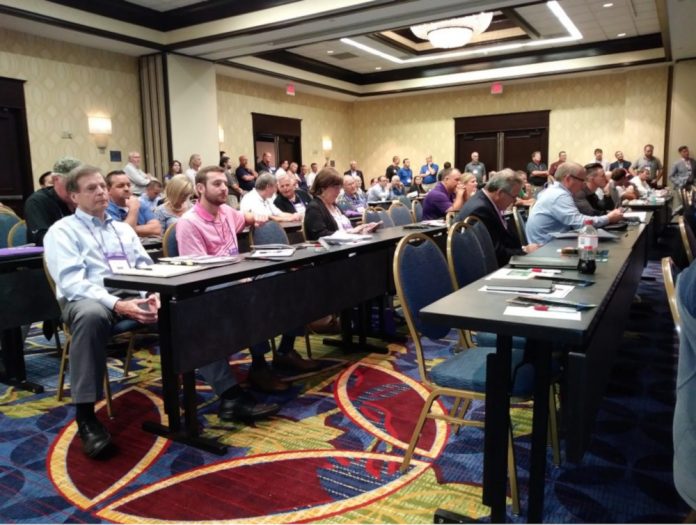New Community Owners Share Good, Bad and the Ugly
SECO18, the symposium for Southeast Community Owners, started its Wednesday afternoon educational session with a presentation titled “Lessons Learned by New Community Owners”.
About 400 manufactured housing professionals registered for SECO attendance, a record in the symposium’s nine-year history.
The goal was for new community owners to share the good, the bad and the ugly of their experiences, and to share them with people who are considering becoming community owners themselves.
Kim and Rusty Reeve
Kim and Rusty Reeve of Dallas, Texas, bought a community in Glencoe, Ala., about a year and a half ago. The purchase had some positives, including a golf course, about 13 wooded acres, a gentle slope (which turned out to be a curse and a blessing), the ability to expand, low taxes and a great school system.
However, after the purchase they found years of deferred maintenance, failed sewer lines, trees that needed to be trimmed, bad roads, utilities that needed to be repaired and some major excavation that needed to be done. They also inherited a manager who didn’t want to change, and who left the park without a word while they were on vacation. Finding skilled labor was another problem.
“Murphy was sort of behind every corner for us,” Rusty said, referencing Murphy’s Law: If something can go wrong, it will.
To get the cash flow going, they decided to purchase four older units and rehab them, as well as improve the park’s appearance. They also developed some great relationships with community residents, who hadn’t seen improvements in decades.
What did they do right? The Murphys…
- Acted quickly when the park hit the market
- Established excellent relationships with city officials, local utilities and building inspectors
- Sought mentoring from successful community owners
- And changed the name of the park to Briarmeade Estates
And what they wish they would have known? Managing a property when you live out of state is difficult. Rehabbing homes and deferred maintenance are expensive. Old employees might be resistant to change. Be prepared for unexpected surprises.
Amy McMahan
Amy McMahan said her and her husband’s community, Stone Oaks in Longview, Texas, fell into their lap about 11 months ago. She said make sure you’re on the job site when contractors are making repairs.
“You may think they know exactly what you want, but they don’t,” she told the audience of manufactured housing professionals at SECO.
She had some other advice: Use non-local banks. Local banks don’t want to deal with “trailer parks”. Go door-to-door and get to know every tenant. They want to feel like the vital part of the community that they are. The McMahans put on a party for tenants, with free food and games. The tenants were flabbergasted by the attention, she said.
Tim Manson
Tim Manson started AM Partners with a partner in April. Based in South Carolina, they bought their first park, an 86-lot community, in Virginia. Due diligence, he said, cannot be too detailed. For example, he thought he was buying a 98-lot park, but three weeks before closing he discovered it was an 86-lot park.
Manson also put emphasis on the importance of getting to know your tenants. He wanted to build a playground, but discovered about half the community didn’t want one.
“Don’t assume you know what’s going to improve your tenants’ life until you have conversations with them,” Manson said.
Another surprise: his biggest tenant issues were with renters, not homeowners.
“The demand for this product is endless, but a large percentage of that demand is not the kind of tenant you want,” Manson said.
“It’s important to not always be available,” he said. “You have to have boundaries with your tenants. Learn what conversations you should have, and at what time those conversations are appropriate.”
And finally: empower your property managers. Pay them right, and make sure they’re the right person to manage that property.







